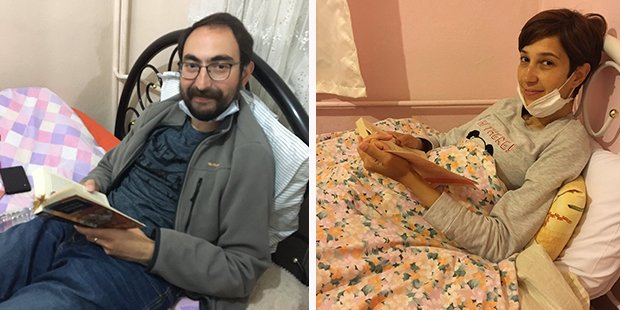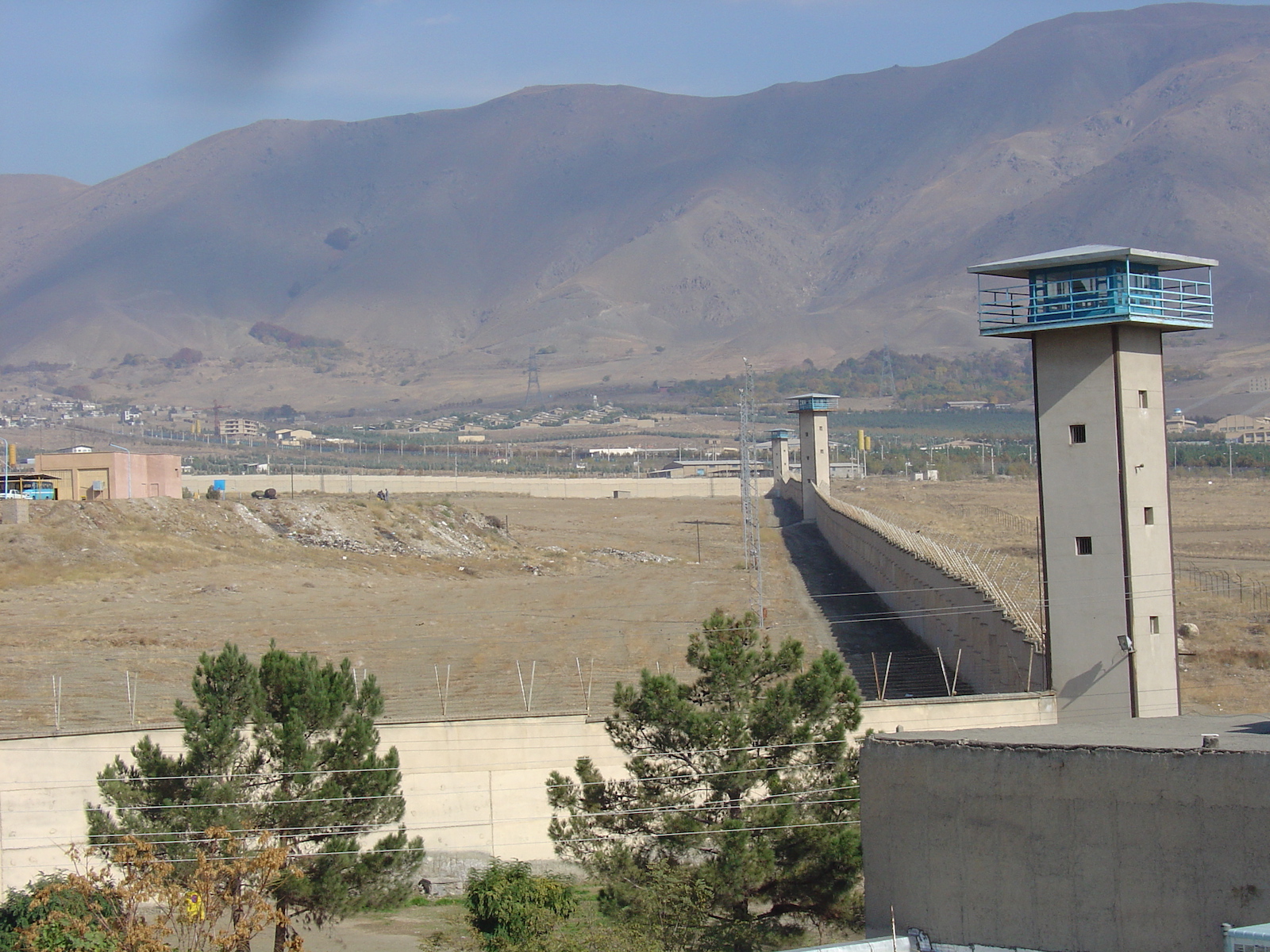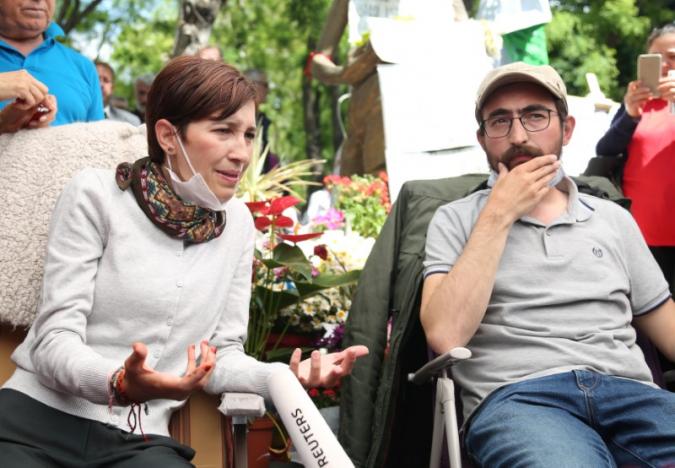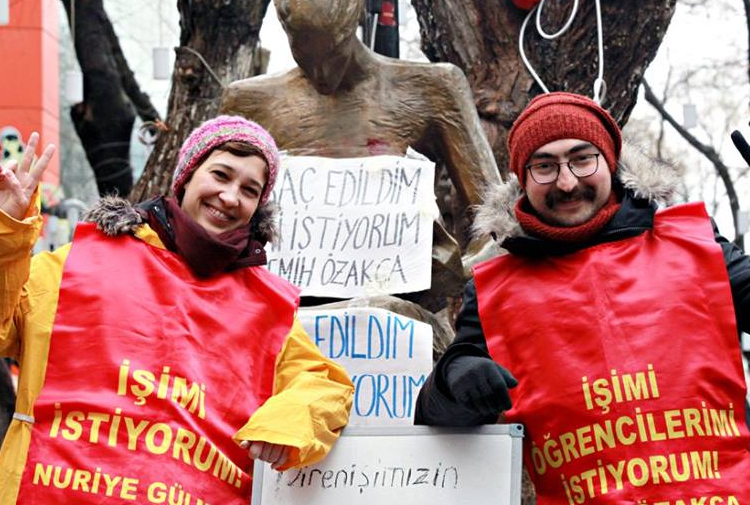Today, Nuriye Gulmen and Semih Ozakca observed 63rd day for their hunger strike in a civic resistance that spurred national attention and demonstrations for solidarity across the country.
Two academics’ attention-inducing protest remains in place for demanding their jobs back. Both were purged by the government by the state of emergency decrees last year.
But with their battle, now came life-threatening health risks. Ankara Chamber of Medicine said on Tuesday that symptoms of Wernicke-Korsakoff syndrome, which is seen in people observing hunger strike, have been noticed after doctors’ medical examination of them.
Chamber’s President Vedat Bulut provided a bleak assessment over two protesters’ health conditions.
“Over the past two days, Nuriye Gulmen’s health gradually deteriorated. Blood pressure and pulse irregularities have emerged, her immunity system against infectious diseases has weakened,” Mr. Bulut told Turkish media. He recommended the two as they went on hunger strike at least to take 1 liter of water, 5 spoons of sugar, some salt, and vitamin B1 on daily basis.
Other indications of blood and biochemical structure are not also promising. Mr. Bulut noted that normally critical period in hunger strikes is passed on the 45th day. Both Ms. Gulmen and Mr. Ozakca have already gone beyond that, marking the 63rd day on Wednesday.
Both of them now display emotional and mental disturbances, disorientation and problems in their senses, he noted, highlighting the side effects of the hunger strike.
With a group of friends, Ms. Gulmen and Mr. Ozakca have remained determined for the hunger strike that created public awareness for the plight of purged academics. Messages of solidarity and social support poured in to boost their morale. But health issue remains a critical problem at the moment.
On Wednesday, 4 lawmakers from main opposition Republican People’s Party (CHP) started a 24-hour hunger strike in Turkish Parliament in support for Ms. Gulmen and Mr. Ozakca. Calls for intervention by authorities to end their hunger strike have increasingly grown.
But the two symbol figures have rejected calls from friends to end their hunger strike. They urged to expand the scope of civic resistance to get their rights back, not to scale down by ending an effective way of protest.
In addressing hunger strike by Ms. Gulmen, Mr. Ozakca and their friends, internationally famous social scientist and sociologist David Harvey released a video expressing support and solidarity with Turkish academics fired in the government purge.
Sezen Aksu, an iconic, towering figure of Turkish music, also voiced solidarity with Ms. Gulmen and Mr. Ozakca.
https://twitter.com/EMeclisi/status/862288569003585536
“We will not get any medical support. We do not accept the doctor-patient relationship. We resist. It is a resistance, not a disease,” Mr. Ozakca told Bianet about their protest.
https://twitter.com/EMeclisi/status/862199207905693696
In a video addressing the supporters from her home where she continues hunger strike, Ms. Gulmen appeared to show fatigue, exhaustion, but she was no less determined than her friend. Despite the negative impact of the hunger strike on her body, she seemed jubilant in the face of the widespread support.
“It is very nice that everyone is trying to do something, and that became our voice. The voice of the hunger finds reception,” she said.
It was the first time she was forced to stay at home within 6 months after she felt too weak to go Kizilay Square, the place where she and her friends keep a presence for their protest and hunger strike.
Hundreds of people across Turkey joined them, holding events to command public attention. After 2 months of hunger strike, their resistance came to the media spotlight, became the topic during the week.
********
This article was possible thanks to your donations. Please keep supporting us here.




















